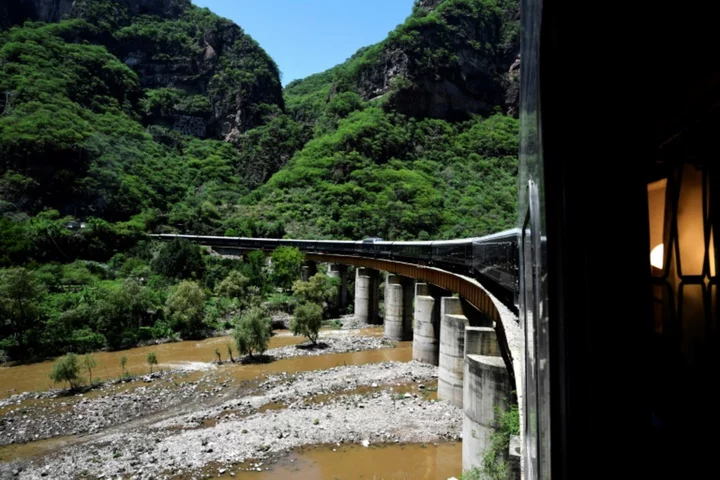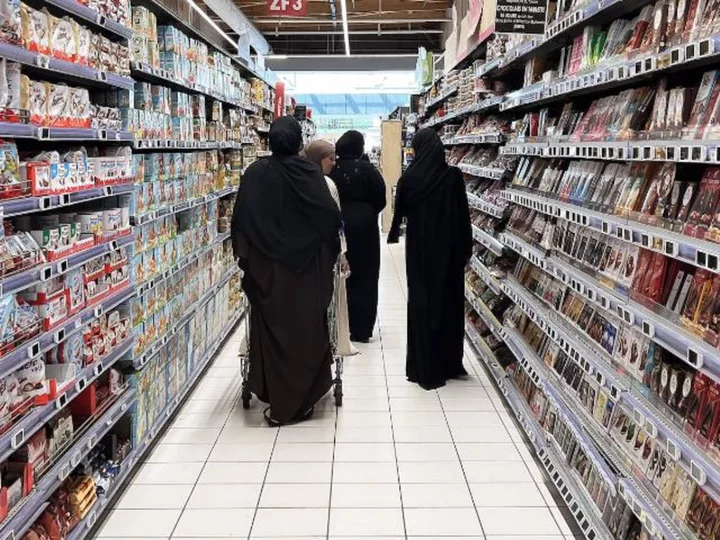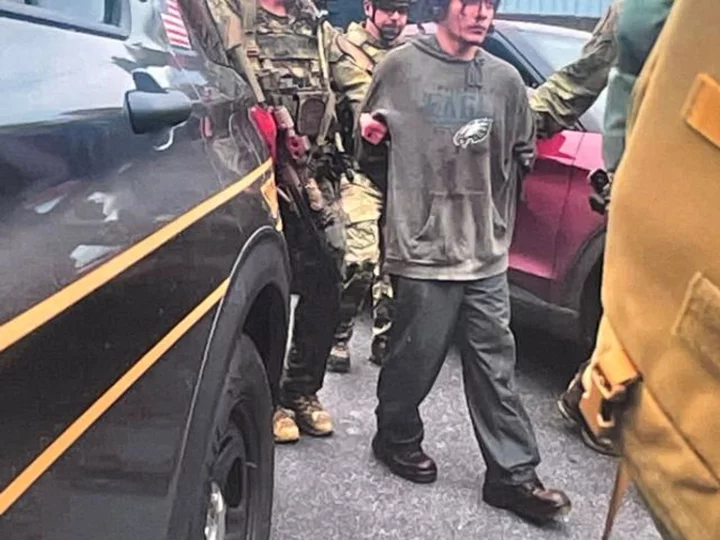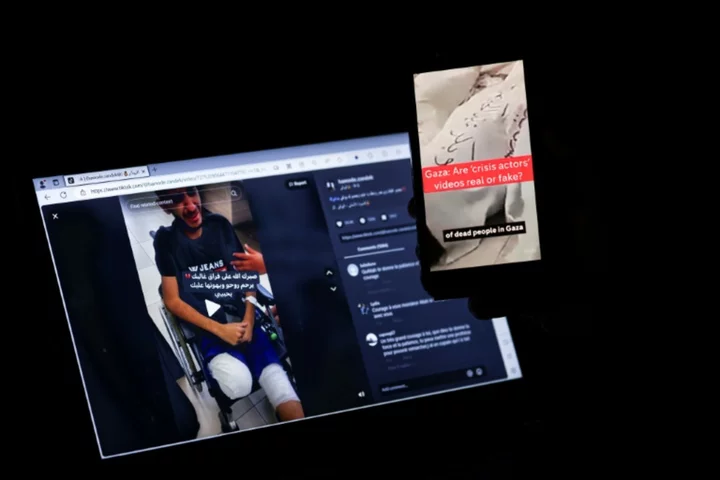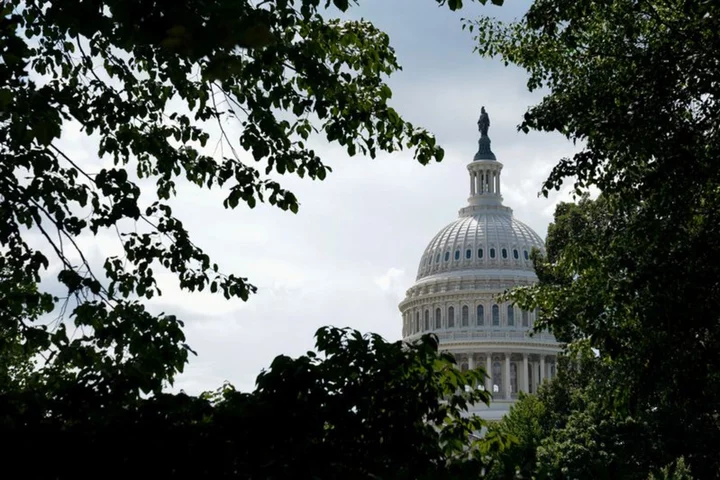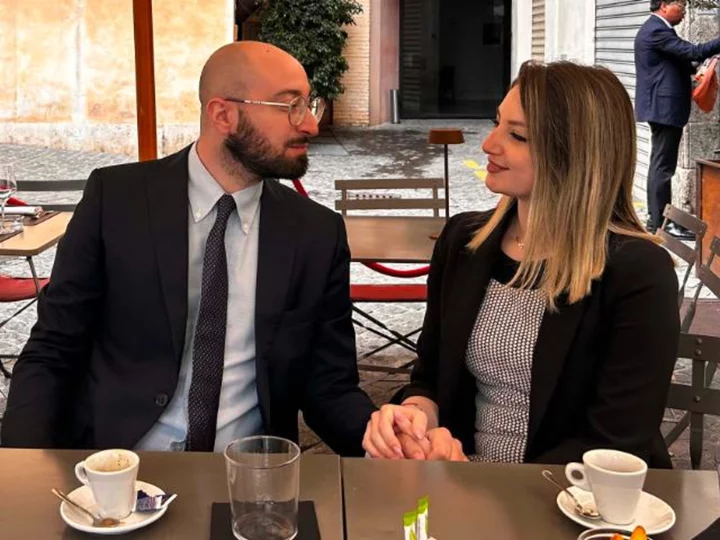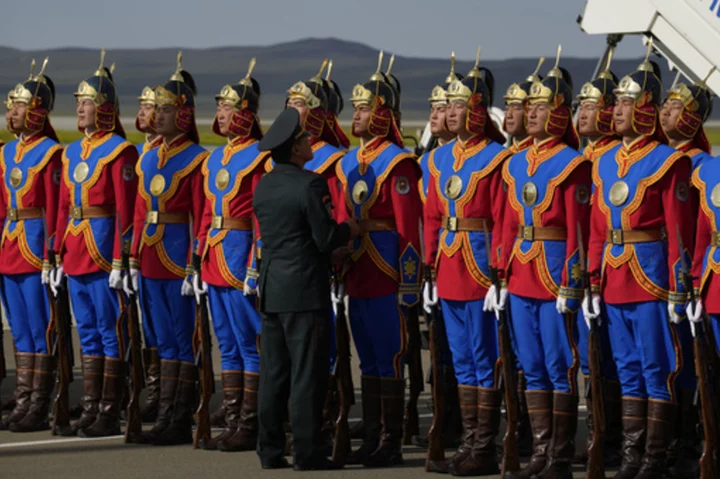From the heartland of a notorious drug cartel to rugged mountains home to remote Indigenous communities, Mexico's "El Chepe" train takes adventure-seeking travelers on a spectacular journey through the Copper Canyon.
The Chepe Express, recognized by National Geographic as one of the world's greatest rail trips, pulls out of Los Mochis in the northwestern state of Sinaloa, heading for the town of Creel in the mountains of Chihuahua.
It was in Los Mochis that Sinaloa cartel founder Joaquin "El Chapo" Guzman, one of the world's most infamous criminals, was captured in 2016.
The US government warns its nationals not to travel to Sinaloa -- and to reconsider going to Chihuahua -- due to the risk of crime and kidnapping.
But that did not deter Adair Margo from making the trip with her family, including seven grandchildren aged two to 12, from her home in El Paso, Texas to ride El Chepe through the Sierra Madre Occidental mountains.
"Life is filled with perils," the 69-year-old told AFP.
"You don't want to stop living. On tours like these you're not walking in the midst of drug cartel wars," she said.
Several hundred people are usually on board the Chepe Express for the journey of around 350 kilometers (220 miles) through the Copper Canyon, said deputy train manager Emilio Carrazco, 46.
Four times bigger than the Grand Canyon in the United States, it takes its name from the copper hues of its walls.
With the exception of urban rail systems and a short tourist service in the tequila-producing region of Jalisco, El Chepe is Mexico's only passenger train, though another is under construction in the Yucatan Peninsula.
"It's another way of discovering Mexico," said Christophe Schild, 55, from France, who was traveling with his partner and 20-year-old twin daughters.
"Of course, many people know the big Mexican cities like Cancun or Acapulco. But we want to discover it another way a little bit, so this train's the opportunity," he said.
- Raramuri -
During the hot summer months most of the passengers are Mexican, but at other times of the year foreigners can make up as much as half of travelers, Carrazco said.
"I get on the train and I feel in the safest part of the world. I come here to the Sierra and all the people here are very friendly, very grateful that tourists come," he added.
The train first crosses the fertile plains of Sinaloa, where farmers tend their corn fields, before ascending along tracks perched next to steep canyon walls, traversing 37 bridges and 86 tunnels.
Views of meandering rivers are gradually replaced by glimpses of white water rapids, while cacti become mountain pines, until the Chepe Express pulls into Creel station more than nine hours later.
"It's a long journey, but it's worth it. We've had the chance to do it several times and we don't get tired of it," said Flor Corrales Chang, a 61-year-old doctor from Los Mochis traveling with her husband and teenage son.
There is also a slower service, the Chepe Regional, with more stops.
One of the attractions of the mountains are the Raramuri -- also known as Tarahumara -- Indigenous people, who are renowned for their running stamina.
In March, hundreds of athletes including foreigners competed against locals in an ultramarathon in the canyon system, which is more than one mile (1.6 kilometers) deep.
- 'Town died' -
The region's natural and cultural riches used to attract many foreign tourists, some of whom even brought their motor homes on the Chepe train, recalled Javier Avila, a Jesuit priest who has worked in the region for decades.
Then in August 2008, gunmen massacred 13 residents of Creel, including a baby.
"The town died," Avila said. "Not a single tourist came."
In the following years visitor numbers gradually began to recover, led by domestic tourism.
The revival suffered a setback in 2018 when a US tourist was murdered by suspected drug traffickers while hiking in the Copper Canyon.
And in June last year, two Jesuit priests and a tour guide were shot dead inside a church in the region.
In general, however, "the armed groups, until now, have respected tourists. They don't rob them. They don't steal from them. They don't assault them," Avila said.
Enjoying the stunning views through the open windows of the Chepe Express's bar, Margo lamented the fact that so many people miss the experience.
"I'm not suicidal. I don't want my grandchildren to be hurt, but I want them to experience life and you can experience a whole lot of life in Mexico," she said.
dr/acb

